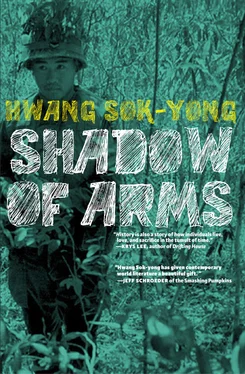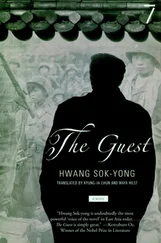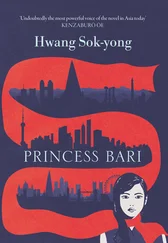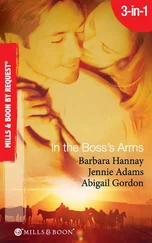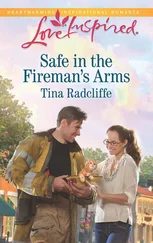“As stated in the thesis published in Hoc Tap in 1965, our special aim is to paralyze the administrative system of the enemy. Thus, the goal of urban guerrillas is to weaken the government through violence, establish an alternative order in the city, and spread the paralysis. Activate the dormant sentiments of nationalism in city dwellers. In the city, the enemy is very powerful and the mass is well under control. Therefore, the urban struggle must be unforeseeable and fast. Strike, run, and hide.
“Hence, the aim and targets can largely be divided in two, and then again subdivided into three. First are government agencies or figures against which the people have grievances. Second are government agencies or figures who are competent and admired by the people. Targeting the former is obvious enough, but at first glance it may be difficult to grasp why the latter would be targeted. If a certain feature of the enemy system we aim to destroy happens to cater to the wishes of the masses, then it is very dangerous. For what is sweet can mask poison. By attacking it, we kill two birds with one stone. The people will see that their competence, after all, was merely competence in maintaining a colonial reality; and the enemy will be warned that no move is safe.
“When the targets are again subdivided on the above principle, the first objective for attack would be the army of the imperialists and their facilities. The second is that part of the security system of the enemy which lies closest and most readily accessible. And the third would be all individuals and facilities whose sympathies are with the enemy. I’ll illustrate with a few examples. In June 1965 a bomb exploded at a restaurant in downtown Saigon. American soldiers were killed and their bodies carried into the street and heaped up. And even more corpses were buried under the destroyed tables and chairs. The total casualties were one hundred twenty. The Liberation Front proclaimed this victory far and wide. In October of the same year, when the South Vietnamese Air Force was holding a meeting in City Hall, a hand grenade exploded resulting in six deaths and forty-five wounded.
“The embassy attack in March of the following year exhibited a new dimension of our tactics. A car stopped outside a main gate. It appeared to have some sort of engine problem. One of the three policemen standing guard approached the car and ordered the driver to stop obstructing a busy street and immediately move the car out of the way. The driver groveled, saying the engine was dead. Irritated, the policeman told him to push the car out of the way if he had to. He pretended to push it, and just then a motorbike sped up and the rider took out a machine gun and shot the policeman. Then, as the other two policemen returned fire, men inside the car shot them. All the guerrillas then fled across the street and the car, heavily loaded with plastic explosives, went off in a huge blast. A large area was leveled. Then, in June, passenger luggage exploded while awaiting inspection in the lobby at Tan Son Nhat Airport.”
It was then that Pham Minh raised his hand. The instructor gave him a puzzled look, but Pham Minh wanted to wash away a feeling of oppression he had been carrying with him ever since his student days in Hue.
“I have a few questions, sir. During the last offensive I was in Hue. Of course, I think the occupation of Hue by the Liberation Front was a brilliant victory. I have no doubt whatsoever that it advanced the national struggle. A lot of our fellow countrymen were killed. But, a few days earlier, I saw a bomb go off in front of the inter-city bus terminal in Hue. The target seemed to be the waiting room of a nearby police checkpoint, but buses standing nearby were destroyed. I saw four children’s bloody corpses thrown on the concrete, and women drenched in blood were wailing. .”
“Hold it, hold it. .”
Dao, the instructor, stopped Pham Minh and in an icy voice asked, “So, what you’re trying to say is that innocent women and children died?”
“That’s, that’s right, sir. I do acknowledge, of course, that such things happen in war. But you were talking, sir, about the various examples of military force used by urban action groups, and I’ve been wondering if terror is something tactical or political, or both. If it kills innocent Vietnamese children, what political significance does it have? If such things are avoidable, should we not go to great lengths to avoid them?”
The instructor looked around at all the trainees before he answered.
“An important point. In the instances I spoke of, I did not mention casualties among innocent civilians. Sometimes the damage can be worse than that inflicted by the enemy. Generally speaking, during an urban military action, the citizens will face a risk of injury or death that is two or three times greater than the enemy forces. However, our Liberation Front considers that all our people, whether they want to or not, are participants in this struggle on a national scale. They died in action for the sake of a new history in Vietnam.”
“What I’m saying is. . that it can be avoided, sir.”
“All around us the enemy is slaughtering countless numbers of our fellow countrymen through aerial bombing and assault campaigns.”
In spite of himself, Pham Minh went ahead with an impassioned outburst. “Because they are the enemy! We are here to save Vietnam!”
“Violence is the worst evil in times of peace. But in the present reality, violence to destroy violence is necessary.”
“Sir, I’m not talking about the ethical standard of violence.”
“Your opinion is full of liberal sentimentalism. Revolutions are not fought in fairy tales.”
Pham Minh was about to say something more when his comrade sitting beside him tugged at his sleeve. Pham Minh turned to look at him. Once during the march, Pham Minh had helped him reach the next rest camp when he was lagging behind. He was a boyish youth from Da Nang, about two years his junior. Only then did Pham Minh realize that everybody in the group was staring at him. He silenced himself. At the end of the session, he was brought before the political officer. The officer told him to sit down and that he had heard what happened from Dao, then the discussion began again.
“I’m sure you know very well without my quoting the words of the Chairman. Our Motherland today is entering into an anti-colonial struggle. In the midst of this, we also have to engage in class struggle. Two very heavy burdens are on our shoulders. On the one hand it is a civil war, but at the same time we must fight against a foreign power. This is not a world of classical revolution where aims were unclouded, like France, where the world of the masses was easily distinguished from the world of the aristocrats at Versailles. We must free ourselves from the oppression of the colonialists and at the same time fight the disease in ourselves that is obstructing liberation.
“That an innocent Vietnamese child was killed by a guerrilla’s bomb is irrelevant. The point is, the enemy dies. That the child also died was a coincidence, but to therefore call the act evil, that’s an absolute ethical stance that transcends the social situation. That cannot exist. We cannot use ethical persuasion to make the enemy retreat. Therefore, the proper ethic for today is to amass all strength so that the enemy is forced to withdraw. To have the children of Vietnam, who have been brought up poorly educated and hungry, grow up happy and healthy, is also included in this scheme of ours. As a means to that end, those Vietnamese children inevitably sacrificed by our violence have actually dedicated their lives for the cause of our revolution.”
“I, too, know the contentions of Trotsky and Kautsky from reading. I shall, of course, fight against the enemy. But, I can tell you now, I did not join the Liberation Front as a communist. When peace arrives here in the future, I’ll live my life as a doctor, treating people’s diseases. I volunteered to give myself as an NLF fighter in order to advance the dream of our nation, but I am not a Marxist. If it’s mandatory that I adhere to that ideology, I’ll try. . but. .”
Читать дальше
